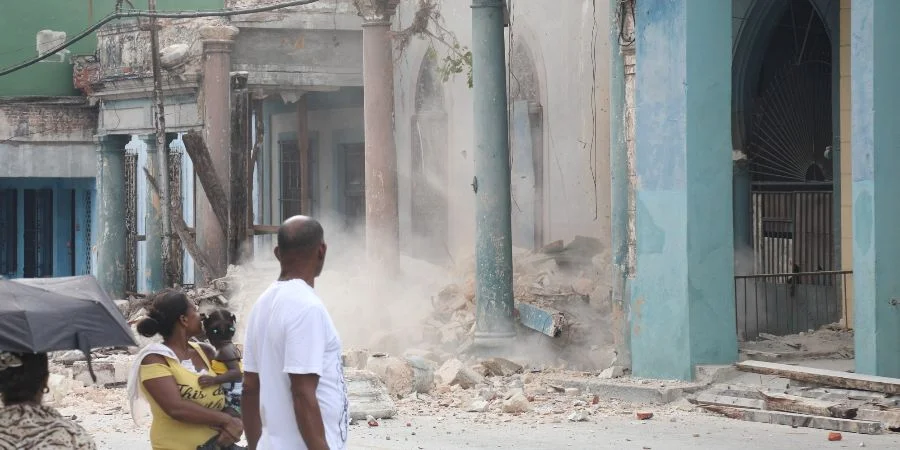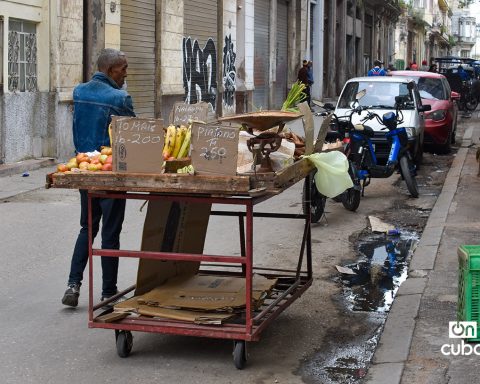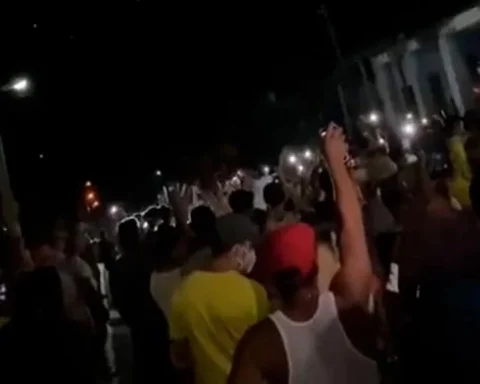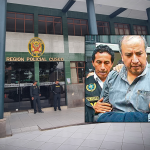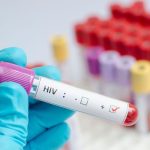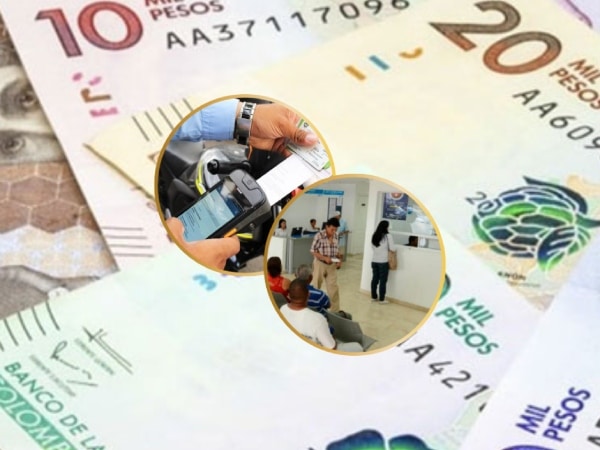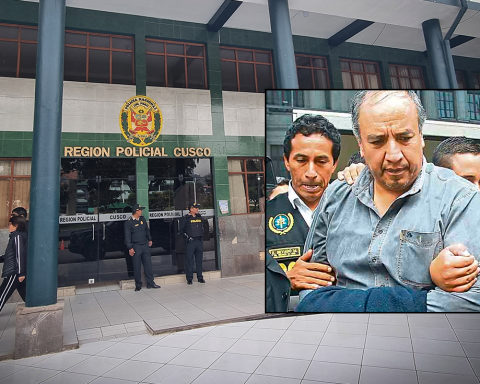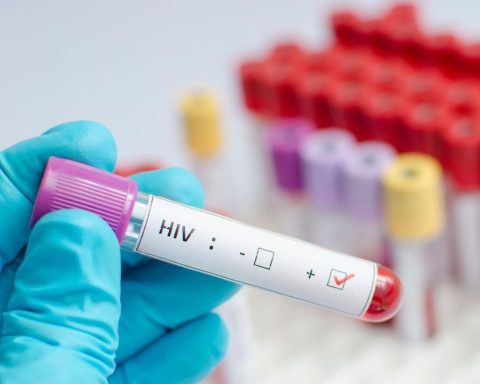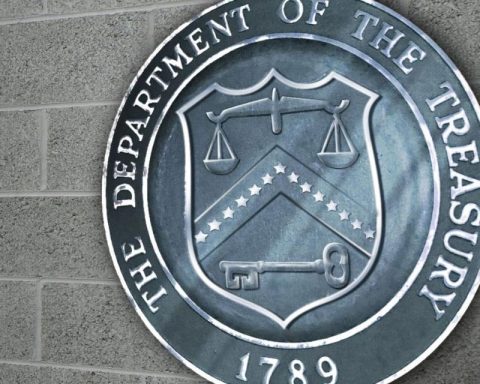HAVANA, Cuba. – According to the speech by Miguel Díaz-Canel Bermúdez at the closing of the IX Plenary Session of the Central Committee of the PCC, held in Havana between December 12 and 13, the work priorities for 2025 will be “unity, the strengthening of work ideological, and politically ensure the Government’s projections” in the strategy of clear regression that they have called “plan to correct distortions and re-boost the economy”, regardless of the failure that the own communists have recognized in the most recent conclave.
The guiding idea has been immediately replicated in the speeches of the other leaders and officials of the dictatorship, and has also caused ridiculous confrontations among the communists. Some of these arguments have even transcended social networks—perhaps even as a “communication strategy” to show a diversity of criteria that does not exist, is prohibited, and is punished—such as those between the host of the controversial television program With edgeMichel Torres Corona, and Díaz-Canel’s spokesperson, Leticia Martínez Hernández, but still making it clear that the economy will not be the center of attention of the regime for 2025 but rather this reinforcement of the “ideological work” that, in the end, is the euphemistic way of calling for the tightening of repression.
In fact, the most immediate action has been the call for a “march of the fighting people”which comes not as the culmination of a IX Plenary Session of the PCC but, above all, as a counterpart to an “exercise to confront crime and corruption” focused on new non-state economic actors, but comes above all after another package of laws , resolutions and decrees that destroy and annul the path along which it seemed that progress was made and that now reveals itself as a circular route, without a destination, that returns us again and again to the beginning.
Of the just over 11,000 MSMEs approved since 2021, less than 10 have retained permits to sell as wholesalers (an essential activity to compensate for the losses derived from price regulation by the State for retail sales and high taxes. , among other charges). The rest will be forced to change their strategies or close, even though the 2023 numbers, in terms of sales and income of almost 900 percent compared to 2024, evidenced success, something that undoubtedly determined the death sentence decreed by the regime, once again highlighted by individual initiatives that, among other positive things, have served to demonstrate the burden that state companies represent for the economy, as well as the potential for “change” that exists in the private sector, a word banned and feared by communists.
Therefore, what has begun in 2024 and will intensify in 2025 is nothing more than an ideological “reset” in which those political dangers, much more important for the preservation of “unity” (meaning “power”), are eliminated. that this dark economic data published by the economist Juan Triana Cordoví with which it is clearly seen that, if the same average growth rate of the 2019-2024 period is maintained, of less than 2 percent, Cubans on the Island would be condemned to not see their income double in the next 150 years.
This means that, despite the promise of an end to the crisis (although no one dares to set a date, not even an approximate one), extreme poverty will continue to worsen by 2025, and that the regime will continue to govern amid more decree-laws and dismissals of senior officials.
The only production fulfilled (and over-fulfilled)
Blackouts, decrees and dismissals are probably the only productions fulfilled and over-fulfilled in 2024, leaving 2023 small where there were also them in industrial quantities.
Although the year 2023 began with massive blackouts, which by the end of February of that year had already reached three, occurring in just 10 days, what happened in 2024 makes the above seen as a rehearsal of the tragedy experienced today on the Island. Between “blackouts programmed” and “solidarity blackouts”, in mid-August 2024 the collapses returned – one of the most recent lasting almost 80 hours – even though the regime had promised a summer without effects, fearing what happened in July 2021 when thousands of Cubans tired of being in the dark for hours lost their fear of repression and took to the streets to protest.
The poor condition of the thermoelectric plants and the inability to acquire fuel made the regime foresee what was about to happen. Massive blackouts would come and with them the protests. Thus, after proclaiming on July 2, 2024 that Cuba was a “war economy”—a term that allows the dictatorship to increase repression and reinforce unpopular measures—, on July 20, it put into circulation a kind warning of punishment under the modifications to the Immigration Law, which allows revoking citizenship and denying entry to the country to people and compatriots related to what the regime itself calls “hostile actions”, something it had always done but which he now disguised with a legal cloak.
The blackouts caused some protests but none as massive as those of 2021. However, the bag of coal, almost converted into a luxury item, began to rise in price until reaching over 2,000 pesos (almost half of the average salary in Cuba), while gasoline, necessary for transportation but also to run domestic electrical generators, has reached a price of more than 600 pesos per liter on the informal market, as well as a 20-peso container. pounds of liquefied petroleum gas, acquired by smuggling, already exceeds 15,000 pesos, a price that represents 10 times the monthly pension of most retirees.
As they are here to stay, 2024 has been the year in which blackouts, so common, were included and protected by law. At the end of November, Decree-Law 110 on “Regulations for the control and use of energy carriers and renewable energy sources” was published, which requires non-state economic actors to have their own electrical generators. And the next day the other law was published where there is already talk of a “special regime” or “energy contingency regime” where it is possible to interpret the omen of more blackouts, even some of more than 72 hours.
Even so, not everything has gone bad for the Cuban regime. In the midst of the so-called “energy contingency”, Russia delivered four electricity generators of 100 MW each on November 23. The information was made public by the Minister of Emergency Situations of Russia, Alexander Kurenkov, almost a month after the president of Mexico sent 400,000 barrels of oil to the Island for humanitarian reasons.
On October 18, the Ministry of Energy and Mines had confirmed that half of the island would have to be turned off due to the generation deficit, but 24 hours before, Prime Minister Manuel Marrero Cruz had made a nervous and hasty television intervention from Santiago de Cuba. implying that the situation was serious. It was then that the great 77-hour national collapse occurred.
In the midst of the most extensive “energy contingency”, but apparently not as a consequence of it but of the chaos of ungovernability and conflicts within the regime, which has led to the rest of the crises and setbacks, on October 29, 2024 Another major scandal broke out again within the ranks of the Communist Party with the unexpected dismissal of the deputy prime minister Jorge Luis Perdomo Di-Lella.
Already on February 16 of this same year, the Minister President of the Central Bank of Cuba, Martha Sabina Wilson González, who had served in the position since 2019, had been dismissed. And before her, on February 2, a few days After having appeared alongside Raúl Castro in the Torch March on January 28, the Minister of Economy and Planning, Alejandro Gil, had been removed from his position and sent home, presumably under trial for corruption. Fernandez.
A true wave of dismissals in 2024 that remind us of that other one, in March 2009, barely having inherited power by Raúl Castro from the hands of his brother, when among those of other officials the heads of Foreign Minister Felipe Pérez Roque and the Secretary of the Council of Ministers, Carlos Lage Dávila.
Likewise, in October 2022, after massive blackouts and as a “response” to them for fear of another outbreak like the one in July 2021, the Minister of Energy and Mines at that time was dismissed.
In the midst of the dismissals that have swept through 2024 since the beginning, a storm of decrees has erupted like an undeclared war against the private sector, which had its hottest point between November and December, with the creation of the National Institute of Economic Actors Non-State Organizations (INAENE), with Mercedes López Acea as president, and the beginning of the “exercise against illegalities and corruption.”
Already in August 2024, several regulatory provisions had been published to regulate the performance of non-state economic actors. The Official Gazette No. 78 of 2024, brought Decree 108 of the Council of Ministers, which came accompanied by Resolution 89 of the Central Bank of Cuba, on monetary contributions in Cuban pesos for the constitution of new non-state forms; Decree 107 of the Council of Ministers also appeared, which regulates activities not authorized to be carried out by micro, small and medium-sized private companies, non-agricultural cooperatives and self-employed workers; Decree-Law 93, of the Council of State, amending Law 13 of the “tax system” of July 23, 2012; Decree-Law 92 of the Council of State, on the special social security regime for TCPs and others; decree-laws 90 and 91 of the Council of State, on the exercise and contraventions of self-employment, respectively; and Resolution 148, of the Ministry of Economy and Planning, where the procedures for the creation, merger, division and extinction of MSMEs are approved.
The most significant thing among all the framework of laws designed for what some call a witch hunt, was the creation of that kind of inquisitorial court that is actually the INAENE, which according to the official discourse, would be the national entity in charge of directing and control the State policy for the development and operation of MSMEs, TCP and CNA.
But if the Ministry of Economy and Planning, in accordance with the decree laws that created it at the time and that are still in force, without any modification, is the State agency that directs policy in economic and planning matters, then, what? What functions must be fulfilled by an institute that is subordinate to the Council of Ministers and whose function is to regulate new economic actors? Shouldn’t this institution be part or at least direction of said ministry? These are questions that perhaps someone could answer before 2025.
The truth is that December began and will end with many laws – apparently written to confuse more than to regulate – and with shortages in all areas of the economy, which a few days ago included the paralysis, for more than 24 hours, of several airport services due to the lack of JET A 1 fuel, in a bad streak that includes liquefied petroleum gas (necessary for cooking in homes without electricity), and gasoline for something as essential as public transportation, in a country where buying a car is still beyond the financial means of even a highly qualified professional.
A country that will wait for 2025 under the uncertainty of whether, in the midst of what were once Christmas or New Year’s holidays, another “disconnection” of the National Electroenergy System will occur like the one in the early hours of December 4, which happened despite laws that try to “regulate” it, that is, normalize it; or under the fear—one among many—that the only news that the regime wants to pass off as “good” is that of more political-ideological work and less economic growth.
